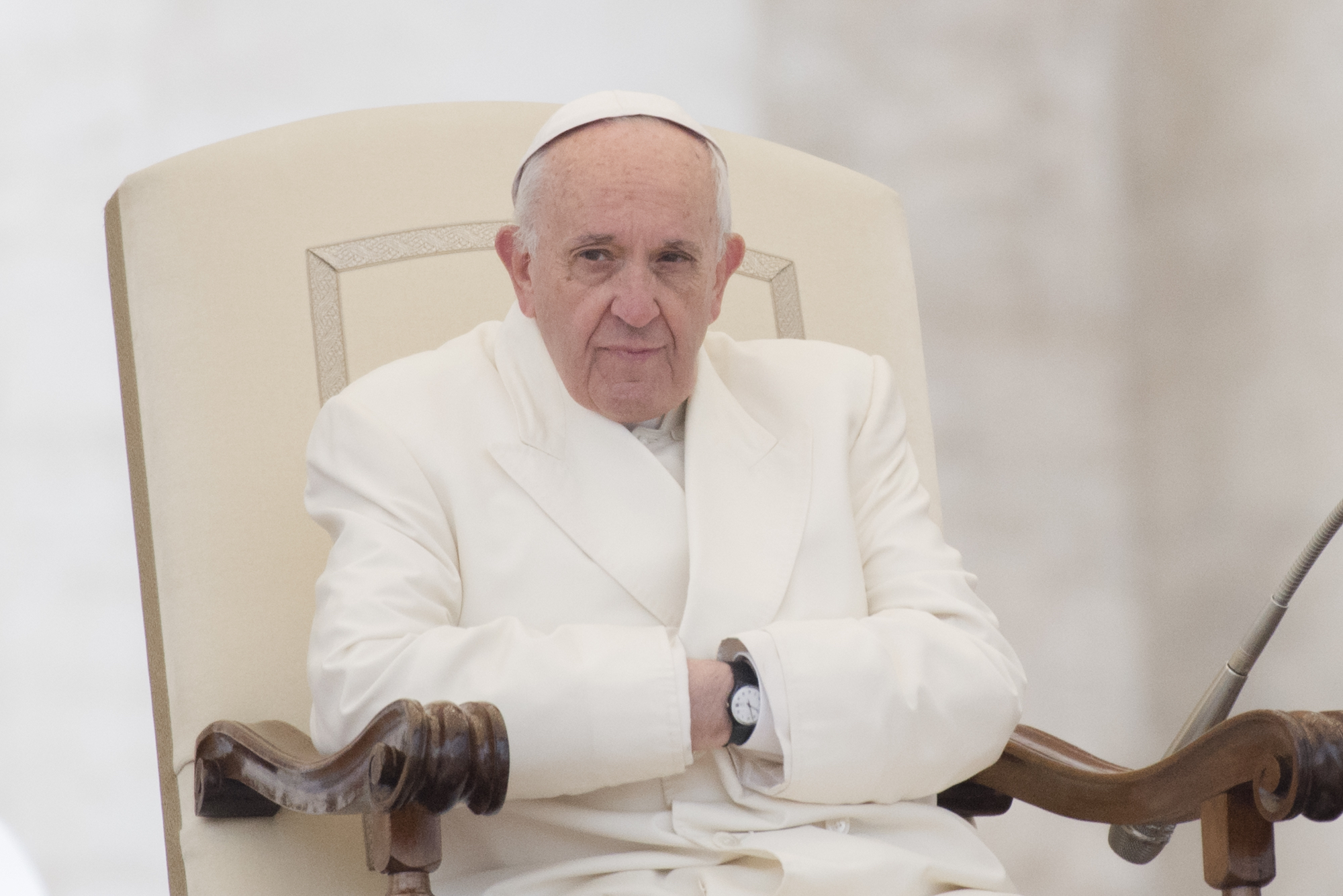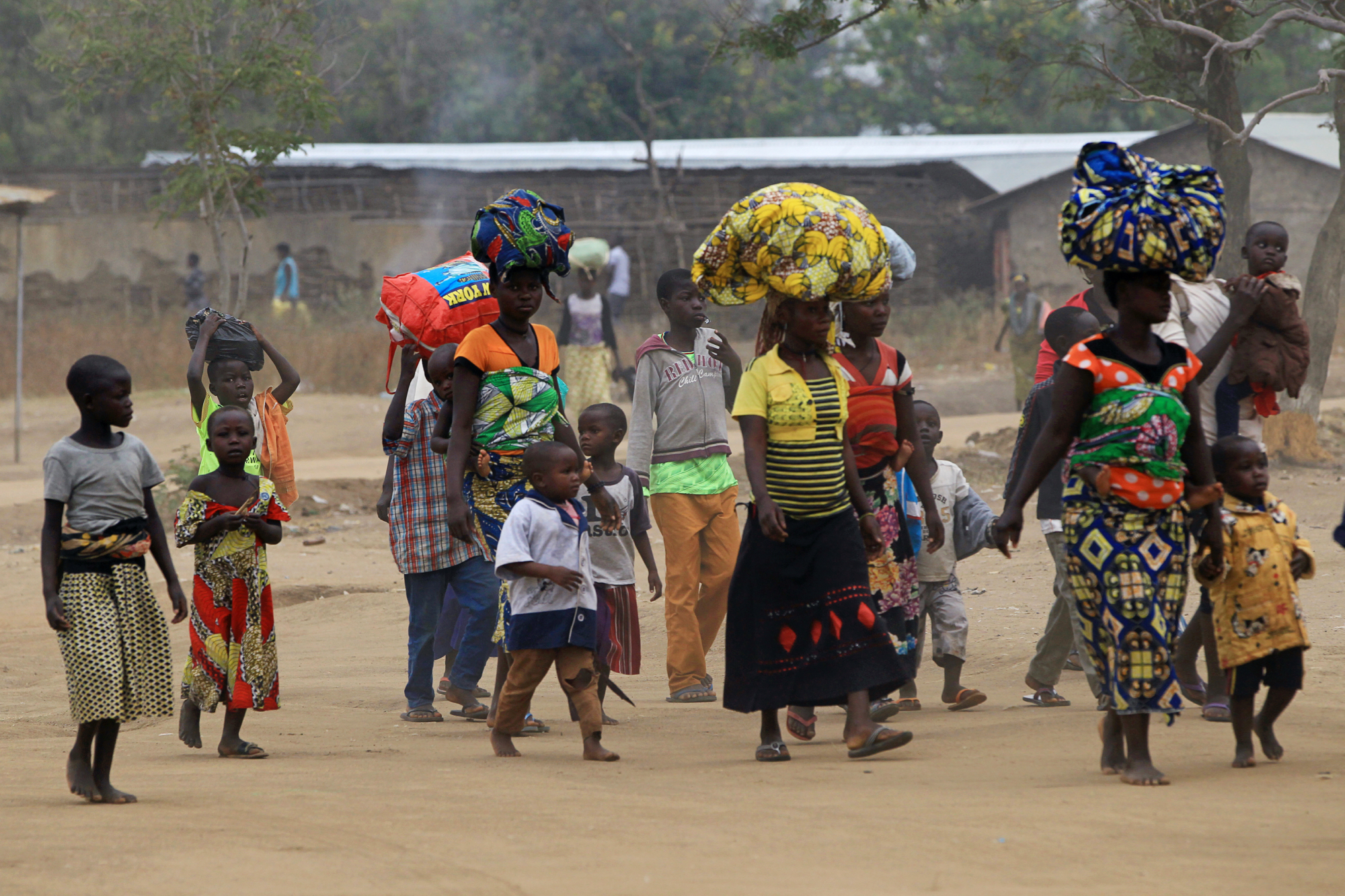Cardinal Vincent Nichols has said that he hopes that today's (23 February) day of prayer and fasting for peace in the Democratic Republic of Congo (DRC) and South Sudan will “bring about real change in the hearts of those who seek non-legitimate ways to exert power and influence.”
In a letter addressed to the Archbishop of Kisangani and president of the Bishops Conference in DRC, Cardinal Vincent Nichols pledges the support and “fraternal concern” of the English and Welsh bishops and praises the DRC bishops’ witness to democracy and to the “fundamental rights of freedom and dignity of the person that underpins all our Catholic teaching.”
Nichols adds: “Your prophetic voice must be heard by all, within the Democratic Republic of the Congo and beyond.”
“Facing the tragic continuation of conflicts in different parts of the world, I invite all the faithful to a special day of prayer and fasting for peace on 23 February, the Friday of the first week of Lent,” the Pope announced during his Sunday Angelus on 4 February.
He asked that the day be offered specifically for the people of the DRC and South Sudan and invited both non-Catholics and non-Christians to join “in the ways they deem most appropriate.”
“Our heavenly Father always listens to his children who cry out to him in pain and anguish,” he said, and made a “heartfelt appeal” for each one of us to “hear this cry and, each one according to their own conscience, before God, ask ourselves: ‘What can I do to make peace?’” he said.
South Sudan has been embroiled in brutal civil war for the past three-and-a-half years, which has divided the young country between those loyal to its President Salva Kiir Mayardiit and former vice president Reik Machar, who is accused of planning a failed coup.
According to the BBC over 2.2m people have been forced to flee the violence-stricken country since the beginning of the war. In August 2017 Uganda received its one-millionth South Sudanese refugee.
Political unrest erupted in DRC after a bill was proposed which would potentially delay the presidential and parliamentary elections in2015. The bill was widely seen by the opposition as an attempt by President Kabila, whos second and final term in office was shortly to expire, to cling on to power.
Last-minute talks brokered by the Catholic Church between DRC government representatives and a coalition of opposition groups failed to reach an agreement before President Kabila’s second term ended.
With a history of violent ethnic rivalries and clashes over resources, fears have developed that the violence in Kasai, a hub for political tension, will spread to the rest of the nation. During 2017, more than 3,300 people have been killed in the Kasai region.
A statement from the Pontifical Council for Interreligious Dialogue following the Pope’s announcement stressed that Francis specifically asked members of other faiths to join the initiative. Highlighting the vital role that religions play in achieving and consolidating peace, the statement urged members of other faith communities to take up the appeal and to join in “moments of prayer, fasting and reflection, according to their own traditions and in their own places of worship”.
The Archbishop of Canterbury, Justin Welby, announced yesterday that he was joining the Pope in prayer.
“He [Francis] is inviting non-Catholic brothers and sisters to join him. I support this call and invite you to join us – and people around the world – in praying that these terribly suffering populations will know peace,” he said in a statement on 22 February.
Francis had planned to visit South Sudan last year alongside Archbishop Justin Welby for an ecumenical trip aimed at promoting peace in the conflict-ridden country. However, due to safety concerns, the visit was postponed.
PICTURE: Displaced people fleeing violent protests in Congo arrive Feb. 17 in Ntoroko, Uganda. Pope Francis has asked for prayers for peace, especially in Congo and South Sudan, Feb. 23. ©CNS photo/James Akena, Reuters



 Loading ...
Loading ...